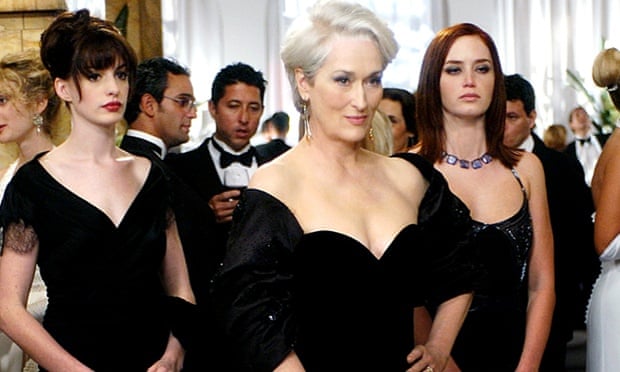From Evelyn Waugh to Lauren Weisberger, the brilliant surfaces of these works show how intimately class and style are bound together

My new novel, Style, has turned out to be rather more topical than I had planned – which sometimes is the way with books (although the beastly reverse can also be true). The title is capable of meaning anything you want it to, really. It can convey a fervidly sought-after, though nebulous, charisma (which many of the worst affected yearn to somehow buy) … though of course my usage is heavily ironic. It can also mean, quite prosaically, simply the way people go about things: their everyday MO.
In Britain, though, “style” is almost as suspect a concept as “charm”: as so often, what we’re really talking about is “class”. I had long been considering writing a novel about the international obsession with celebrity and “must-have” status symbols, but held back because surely the mania couldn’t last. But no: it has powered along, steadily gaining momentum. The trigger arrived a few years ago when Brooklyn Beckham – son of David and Victoria – became, aged 10, a highly-paid model for Burberry. A couple of months ago, his brother Romeo followed suit, and because an unglimpsed child model forms the bedrock of my novel, this has maybe given it a bit of unexpected oomph.
This is a necessarily random scattering of books that delve really not that deeply into the shallowness of it all.
More
In Britain, though, “style” is almost as suspect a concept as “charm”: as so often, what we’re really talking about is “class”. I had long been considering writing a novel about the international obsession with celebrity and “must-have” status symbols, but held back because surely the mania couldn’t last. But no: it has powered along, steadily gaining momentum. The trigger arrived a few years ago when Brooklyn Beckham – son of David and Victoria – became, aged 10, a highly-paid model for Burberry. A couple of months ago, his brother Romeo followed suit, and because an unglimpsed child model forms the bedrock of my novel, this has maybe given it a bit of unexpected oomph.
This is a necessarily random scattering of books that delve really not that deeply into the shallowness of it all.
1. Noblesse Oblige: An Inquiry into the Identifiable Characteristics of the English Aristocracy, edited by Nancy Mitford (1956)
Nancy Mitford is always credited as the one responsible for bringing U and Non-U language and behaviour to the attention of the terrified middle classes, but it was actually Alan SC Ross who first started probing into sociological linguistics in the magazine Encounter. Mitford further explored the theme, and Osbert Lancaster, Evelyn Waugh and John Betjeman were eager to joyously and snobbishly pitch in. The middle classes strove to do better, and they are striving still.More
No comments:
Post a Comment